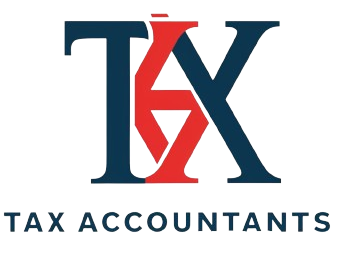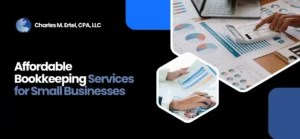Managing payroll can be time-consuming, stressful, and prone to errors—especially...
Read MoreSummer Accounting Tips for Small Businesses
As summer approaches, small business owners in Monrovia, CA, face unique challenges and opportunities. The warmer months often bring changes in customer behavior, seasonal staffing needs, and the need for effective financial management. To ensure your business thrives during this time, it’s essential to implement sound accounting practices. Here are some summer accounting tips to help you navigate the season successfully.
First and foremost, summer is an excellent time to review your business’s financial health. This includes assessing your cash flow, evaluating your income tax obligations, and planning for upcoming expenses. You can avoid pitfalls and position your business for success by staying proactive.
Additionally, summer is a great time to focus on your bookkeeping services. Keeping accurate records is crucial for effective tax planning and compliance. Whether utilizing payroll accounting services or small business bookkeeping, maintaining organized financial records will save you time and stress when filing state income tax and preparing your income tax return.
Finally, consider seeking assistance from business consulting firms specializing in taxation and accounting services. These professionals can provide valuable insights and strategies to help you optimize your financial operations and ensure compliance with income tax rates and brackets. By following these summer accounting tips, you can set your business up for a successful season and beyond.
Plan for Seasonal Staffing Needs
Summer often brings an influx of customers, especially for retail, hospitality, and tourism businesses. As a small business owner, planning for seasonal staffing needs is crucial to meet this demand. This may involve hiring temporary employees or adjusting staff schedules to accommodate increased workloads.
When planning for seasonal staffing, consider the financial implications. Hiring additional staff can impact your payroll accounting services, so it’s essential to budget accordingly. Evaluate your income tax brackets and how additional payroll expenses may affect your overall tax liability.
Additionally, ensure you comply with all state income tax regulations when hiring seasonal employees. This includes withholding the appropriate taxes and filing necessary documentation. If you’re unsure about the requirements, consulting with business consulting services can provide clarity and help you navigate the complexities of employment taxation.
Moreover, the training and onboarding process for seasonal staff should be considered. Investing time in training can lead to higher productivity and better customer service, ultimately benefiting your bottom line. By effectively planning for seasonal staffing needs, you can ensure your business is well-prepared to handle the summer rush.
Schedule Employee Vacation Time
Summer is synonymous with vacations, and as a small business owner, managing employee time off effectively is essential. Scheduling employee vacation time can be challenging, especially if you have a small team. However, proper planning can help maintain productivity while allowing employees to enjoy their well-deserved breaks.
Start by creating a vacation policy that outlines how employees can request time off. Encourage your team to submit their vacation requests well in advance, allowing you to plan for coverage during their absence. This proactive approach can help you avoid staffing shortages and ensure your business runs smoothly.
Consider how employee vacations may impact your payroll accounting services from an accounting perspective. If multiple employees take time off simultaneously, you may need to adjust schedules or hire temporary staff. This can affect your cash flow, so it’s essential to budget for any additional labor costs.
Additionally, keep in mind that vacation time can have tax implications. Depending on your state income tax laws, you may need to account for unused vacation days when calculating payroll taxes. Consulting with taxation and accounting services can help you navigate these complexities and ensure compliance with all regulations.
You can maintain a positive work environment by scheduling employee vacation time effectively while ensuring your business remains productive throughout the summer.
Encourage Productivity
Employees can quickly become distracted or less focused on their work with the summer sun shining. As a small business owner, you must encourage productivity during this season to ensure your business thrives. Here are some strategies to keep your team motivated and engaged.
First, consider implementing flexible work hours. Allowing employees to adjust their schedules can help them balance work and personal commitments, increasing job satisfaction and productivity. For example, offering the option to start earlier or finish later can accommodate summer activities and vacations.
Additionally, create a positive work environment that fosters collaboration and creativity. Organize team-building activities or summer outings to strengthen employees’ relationships. A cohesive team is often more productive and motivated to achieve business goals.
From an accounting perspective, consider how productivity impacts your bottom line. Higher productivity can increase sales and revenue, positively affecting your state income tax return. Regularly review your financial performance to identify areas for improvement and ensure that your business remains on track.
Finally, provide ongoing training and development opportunities for your employees. Investing in their skills can lead to improved performance and job satisfaction. Whether through workshops, online courses, or mentorship programs, continuous learning can help your team stay engaged and productive throughout the summer.
Review Your Cash Flow
Summer is ideal for reviewing your cash flow and ensuring your business remains financially healthy. Cash flow management is crucial for small businesses, especially during summer, when expenses may increase due to seasonal staffing and inventory needs. Start by analyzing your cash flow statements to identify trends and potential issues.
Evaluate your income sources and expenses to understand where your money is coming from and where it’s going. This will help you make informed decisions about budgeting and spending. If you notice any cash flow gaps, consider adjusting your pricing strategy or exploring new revenue streams to boost income.
Additionally, monitor your accounts receivable and follow up promptly on outstanding invoices to maintain steady cash flow. Implementing a systematic approach to invoicing and collections can help you avoid cash flow issues that may arise from delayed payments.
From a tax perspective, understanding your cash flow is essential for effective tax planning. By keeping track of your income and expenses, you can better estimate your tax liability and avoid surprises during income tax filing. Consulting with business consulting firms can provide valuable insights into cash flow management and tax strategies tailored to your business needs.
Finally, consider setting aside a cash reserve for unexpected expenses or emergencies. A financial cushion can provide peace of mind and help you navigate any challenges during the summer months.
Keep Up With Bookkeeping
Maintaining accurate and up-to-date bookkeeping is vital for small businesses, especially during the busy summer. Proper bookkeeping ensures a clear picture of your financial health, making it easier to make informed decisions and comply with tax regulations.
Organize your financial records, including receipts, invoices, and bank statements. Utilize bookkeeping services or accounting software to streamline the process and reduce the risk of errors. Regularly updating your records will save you time and stress when filing state income tax and preparing your income tax return.
Additionally, consider scheduling regular check-ins with your accountant or bookkeeper to review your financial statements. This will help you identify any discrepancies and ensure your records are accurate. Staying on top of your bookkeeping can also provide valuable insights into your business’s performance, allowing you to make data-driven decisions.
As summer progresses, monitor your expenses and revenue. If you notice any significant changes, adjust your budget accordingly. This proactive approach will help you maintain financial stability and prepare for upcoming tax obligations.
By prioritizing bookkeeping during the summer months, you can ensure that your business remains organized and compliant with all tax regulations, ultimately setting yourself up for success.
Plan For Taxes
As summer comes to a close, it’s essential to start planning for taxes. Effective tax planning can help you minimize tax liability and ensure compliance with state income tax regulations. Review your financial records and estimate your income tax obligations based on your current revenue and expenses.
Consider consulting with tax and accounting services to develop a comprehensive tax strategy tailored to your business needs. They can help you navigate the complexities of income tax brackets and identify potential deductions that may apply to your business. This proactive approach can lead to significant savings when it comes time to file your income tax return.
Additionally, keep track of any changes in tax laws that may affect your business. Staying informed about updates in taxation can help you make necessary adjustments to your financial practices and ensure compliance with all regulations.
Consider setting aside funds for tax payments as part of your year-end tax planning for small business owners. This will help you avoid cash flow issues when tax season arrives and ensure you’re prepared for unexpected expenses.
Finally, don’t forget to review your payroll accounting services to ensure you’re withholding the correct amounts for state income tax. Regularly updating your payroll records can help you avoid penalties and ensure compliance with all tax regulations.
Planning for taxes throughout the summer allows you to set your business up for financial success and peace of mind.
FAQs
How do I do accounting for my small business?
To do accounting for your small business, keep organized financial records, track income and expenses, and consider using accounting software or hiring a professional accountant.
Which accounting option is easiest for a tiny business to maintain?
The easiest accounting option for a tiny business is often a simple cash-based accounting method, which tracks income and expenses as they occur.
What is the best bookkeeping method for a small business?
The best bookkeeping method for a small business typically involves using accounting software that suits your needs, allowing for easy transaction tracking and financial reporting.
RECENT POSTS
Professional Accounting Services Lakewood
For small businesses in Lakewood and Denver, navigating finances can...
Read More80228 Payroll Services Lakewood CO
If you own a small business in Lakewood, CO, you...
Read MoreAccounting Services Lakewood Co
Navigating the complexities of financial management requires a partner who...
Read MoreReliable Payroll Services Small Businesses Lakewood
Managing payroll can be a daunting task for small businesses....
Read MoreEmployee Payroll Services Lakewood CO
Managing employee payroll is a critical aspect of any business....
Read MoreCPA Tax Preparation Lakewood CO
Filing your taxes can be overwhelming — especially if you're...
Read MoreAffordable Bookkeeping Services Lakewood CO 80228
In the bustling business environment of Lakewood, CO, particularly in...
Read MoreAccounting Firm Services Lakewood co 80228
In the dynamic business landscape of Lakewood, Colorado, small businesses...
Read More









